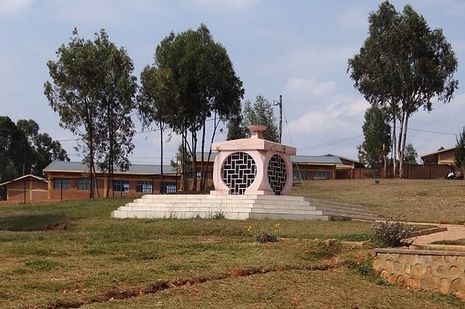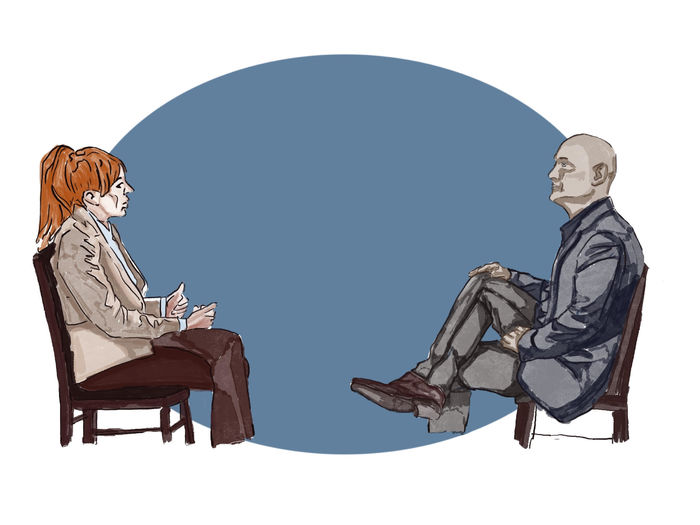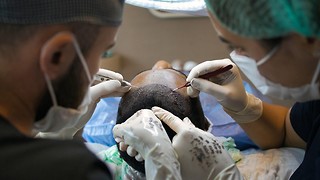‘Forget not your past’: Christian Intwari on ‘Our Past Initiative’
Salome Gakwaya speaks to activist and founder of ‘Our Past Initiative’, Christian Intwari, about remembering the 1994 Genocide against the Tutsi 30 years later

As the sun sets on the rolling hills of Kigali on April 9, I, along with over 6,000 young Rwandans, gather in The Garden of Memory at the Nyanza-Kicukiro Genocide Memorial for the ‘Our Past Event’. As I walk in, I am handed a candle and follow the path to the amphitheatre, where a video plays, explaining the importance of the memorial site as a space of remembrance.
“It serves as a reminder of the failures of the international community and the perseverance of the Rwandan people”
In a one of a kind opportunity, I spoke with Christian Intwari, Executive Director of ′Our Past Initiative’, who reiterates the importance of keeping Rwandans close to our history. “We don’t want to take them away from that history, we want to keep them close to what we are talking about”. In the Nyanza-Kicukiro Genocide Memorial rests over 100,000 genocide victims, including many who took refuge in Kigali’s Ecole Technique Officielle and were abandoned by the Belgian UN peacekeeping forces. It serves as a reminder of the failures of the international community and the perseverance of the Rwandan people. The Garden of Memory highlights life and hope after a genocide, but also the protection that nature provided victims during the 1994 Genocide against the Tutsi. Newly planted indigenous trees echo the large lighted tree that stretched across the centre of the BK Arena during the commemoration conference on the 7th of April. Its roots, trunk, and foliage remind us of Rwanda’s past but also its aspirations for the future. “If you don’t want to go back, we have to make sure the younger generations know where this country has come from.”
Throughout the evening, the event uses art as a mechanism of remembrance and healing. “Art is a universal language”, Intwari tells me, “when people understand and connect with art we can deliver our message.” These artistic tributes take the form of songs, plays and poems. Performance is provocative and allows young people to ask questions, and discuss this with their families and communities. Erneste Maniraho, a survivor from Nyanza-Kicukiro, gives a touching testimony as he recounts his family’s journey and his survival of the Genocide against the Tutsi. The ‘Our Past Event’ allows us to listen and watch, as we remember the past collectively.
“we are not just asking questions, we also want to help the older generations heal”
The initiative’s impact stretches beyond the event, as they work with genocide survivors and Rwandan youth to enable communication and rebuilding. Their three objectives are education, communication and outreach: continue to educate one another and the next generation, finding healthy ways to communicate with our past, and supporting those affected by the genocide. “Growing up I was always curious, and that’s where the whole idea started, to keep educating myself and keep educating other young people.” When Intwari started the initiative, it began as a question: “Can you let us know about our past?”. After visiting where his father’s family had come from in Nyaruguru, they “talked for six hours,” Intwari explains, “after 23 years I found a way.” Twelve years into this journey, “you learn, you unlearn, you learn again.”
Curious to find out more about his family’s history and Rwandan history, while contributing to the wider community, Intwari goes on to tell me that “we are not just asking questions, we also want to help the older generations heal.” The initiative reaches out to support genocide survivors by rebuilding homes, providing health insurance, and listening to their stories. The work of the NGO in rural communities is vital. ‘Our Past Initiative’ builds menstrual hygiene rooms for schools in these areas, and now renovates the homes of 12 genocide survivors every year. “This year we are also starting a new way of reaching out to these communities, giving these families the means to support themselves.” As ‘Our Past Initiative’ grows, so does its impact. “When we look at the stages of genocide, the last one is denial.” By continuing to educate young Rwandans and the international community, “we keep our history close”. “This is not fiction, this is something that happened, these are the effects of the genocide.”
“I think this year was different,” Intwari comments. Kwibuka is to remember, and from April 7 to July 4, Rwandans come together to honour the million lives lost and ensure that this never happens again. As we acknowledge three decades since the 1994 Genocide against the Tutsi, the testimonies and commemorations hold messages of hope and celebrate the lives survivors have built.
 Features / Meet the Cambridge students whose names live up to their degree9 September 2025
Features / Meet the Cambridge students whose names live up to their degree9 September 2025 News / Student group condemns Biomedical Campus for ‘endorsing pseudoscience’10 September 2025
News / Student group condemns Biomedical Campus for ‘endorsing pseudoscience’10 September 2025 News / Tompkins Table 2025: Trinity widens gap on Christ’s19 August 2025
News / Tompkins Table 2025: Trinity widens gap on Christ’s19 August 2025 Science / Who gets to stay cool in Cambridge?7 September 2025
Science / Who gets to stay cool in Cambridge?7 September 2025 News / New left-wing student society claims Corbyn support11 September 2025
News / New left-wing student society claims Corbyn support11 September 2025









